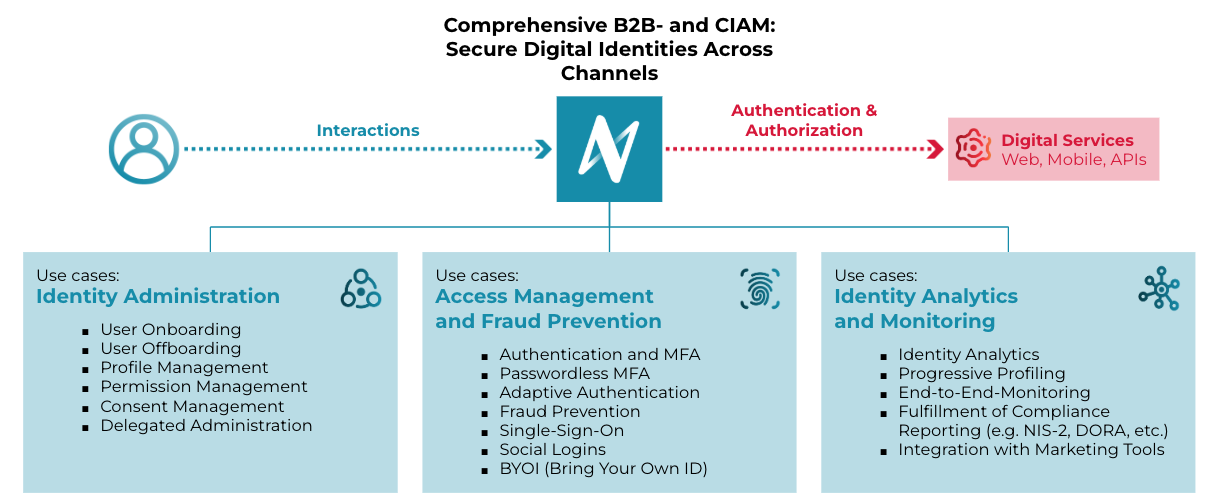Nevis ID
Nevis ID is a Customer Identity and Access Management (CIAM) platform available as a service. It securely manages digital identities and access for your customers throughout their entire journey, including customer onboarding and registration, verifying user credentials through different authentication methods, and managing user profiles.
Customer Identity
At its core, customer identity is a digital representation of an individual (or non-human entity like an IoT device or bot) that interacts with an organization's public-facing applications and services.
Authentication Credentials: Usernames, passwords, biometric data (fingerprints, facial scans), multi-factor authentication (MFA) methods (OTP, authenticator apps), magic links, etc.
Profile Data: Name, email, address, phone number, demographic information, preferences, purchase history, and other relevant details.
Behavioral Data: IP addresses, device information, login patterns, location data, and other contextual information that can indicate legitimate or suspicious activity.
Consent and Privacy Preferences: Records of what data the user has consented to share and how it can be used, crucial for compliance with privacy regulations like GDPR.
CIAM
CIAM (Customer Identity and Access Management) is the strategic and technological framework an organization implements to securely manage and control the digital identities and access permissions of its external users (customers, partners, temporary workers, non-human identities, etc.) across all digital interactions.
CIAM directly addresses the cybersecurity challenges associated with customer identity by providing a comprehensive set of features and capabilities:

Benefits for Users
- Simplified Onboarding: Easier and faster process for new users to register and create accounts.
- Streamlined Access: Convenient login options like social logins and potentially passwordless authentication.
- Improved Profile Management: Ability to easily manage and update personal information.
- Enhanced Security: Features like Multi-Factor Authentication (MFA) and adaptive authentication protect user accounts.
- Single Sign-On (SSO): Ability to use one set of credentials to access multiple digital services.
- Control over Consent: Management of privacy preferences and data sharing.
- Bring Your Own Identity (BYOI): Flexibility to use existing trusted digital identities.
Benefits for Businesses
- Enhanced Security and Fraud Prevention: Reduced risk of unauthorized access and fraudulent activities.
- Improved Access Management: Granular control over user permissions and access to resources
- Better Identity Analytics: Insights into user behavior and access patterns for informed decision-making.
- Progressive Profiling: Gathering user data incrementally to improve understanding without overwhelming users initially.
- End-to-End Monitoring: Comprehensive oversight of identity-related activities.
- Delegated Administration: Ability to distribute administrative tasks efficiently.
- Compliance: Facilitates adherence to data privacy regulations through consent management.
- Scalability: Ability to manage a large and growing number of customer identities.
- Improved User Experience: Leading to increased customer satisfaction and engagement.